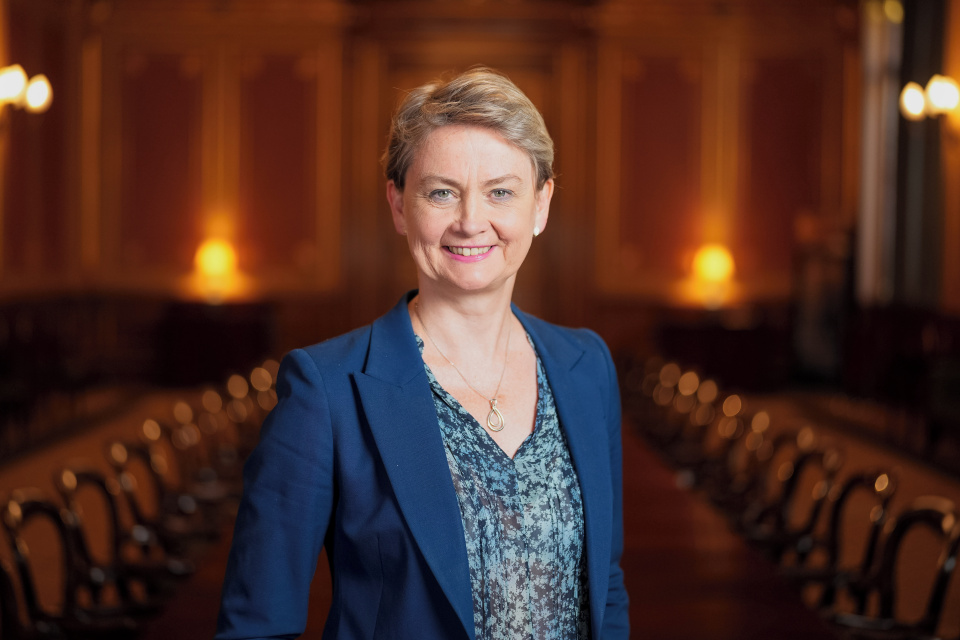Important Facts
- UK Foreign Secretary Yvette Cooper addressed the 21st Manama Dialogue in Bahrain on 1 November 2025.
- She discussed the Gaza ceasefire, international cooperation, and support for Palestine’s statehood.
- Cooper praised US President Trump’s role in achieving the Gaza ceasefire.
- The UK committed £5 million in additional aid for Sudan, on top of £120 million already provided this year.
- She emphasised the need for a two-state solution between Israel and Palestine.
- Cooper condemned atrocities in Sudan and called for a global push to end the conflict.
- She stressed that humanitarian aid for Gaza must not be conditional.
- Russia’s veto on UN humanitarian resolutions for Sudan was criticised during the address.
- Cooper reaffirmed long-term UK support for Ukraine against Russia.
- The speech urged modernising multilateral partnerships for global security.

A Call for Renewed Global Cooperation
UK Foreign Secretary Yvette Cooper delivered a compelling address at the 21st Manama Dialogue in Bahrain, highlighting the interconnected nature of global security in an era of multiple regional crises. Speaking on 1 November 2025, she underscored the critical importance of unified international action in addressing challenges ranging from Gaza to Sudan and Ukraine.
Cooper began by expressing gratitude to Bahrain’s leadership and the International Institute for Strategic Studies for hosting a platform that fosters dialogue on global security. She reflected on the conference’s longstanding role in shaping collaborative solutions to regional and international issues.
Fragile Hope in Gaza After Ceasefire
Central to her speech was the situation in Gaza, where a ceasefire has endured for nearly a month after two years of significant loss and disruption. Cooper acknowledged the fragility of the truce but praised the diplomatic persistence of international actors, especially US President Trump, alongside Qatar, Egypt, Turkey, the UK, France, and other nations.
The ceasefire’s success, she said, was a testament to steady leadership and global collaboration, including the move by several Western and Arab countries to formally recognise the state of Palestine through a joint UN declaration last summer. However, she cautioned that enduring peace is still some way off, urging stakeholders to build momentum and fully commit to the two-state solution.
“Humanitarian aid cannot be conditional,” Cooper asserted, highlighting the desperate need for food, healthcare, and governance reforms in Gaza. She noted the UK’s continued assistance through planning, stabilisation efforts, and support for reformed Palestinian authority structures.
Sudan’s Humanitarian Catastrophe
Turning her attention to Sudan, Cooper voiced deep concern over the worsening humanitarian crisis, remarking that the violence in Darfur represents one of the most severe tragedies of this century. Reports of mass killings and sexual violence, especially against women and children, were described as “truly horrifying.”
While the UK has already committed £120 million in humanitarian support to Sudan in 2025, Cooper announced an additional £5 million to aid those trapped in the violence-hit region of El Fasher. She criticised the international community’s failure to pressure warring factions into ceasefire talks, particularly noting Russia’s veto on a UN resolution calling for humanitarian access.
Backing Ukraine, Sanctions on Russia
The speech also reaffirmed the UK’s position on the war in Ukraine, where Russia’s invasion threatens the stability of Europe and beyond. Cooper reiterated the UK’s support for Kyiv and its intention to impose ongoing economic measures against Moscow until it agrees to a just peace.
Modernising Global Security Frameworks
Cooper identified a broader lesson from these crises: that modernised, flexible multilateral frameworks are vital for safeguarding global peace. Whether through established structures like the UN or through ad-hoc coalitions formed in response to specific crises, she urged countries to embrace cooperative security as a shared global responsibility.
As conflicts intensify and threaten regional balances, Cooper’s address at Manama was a timely reminder that the world remains closely interconnected. Only through shared resolve can lasting peace and stability be achieved in today’s unpredictable security landscape.
Conclusion
The UK’s foreign policy, as outlined by Yvette Cooper, is committed to active humanitarian support, reinforcement of international norms, and constructive diplomacy. Her call to the global community stands clear: to lean in, not withdraw, and rebuild a more resilient system of global security governance in an era marked by escalating regional tensions.
